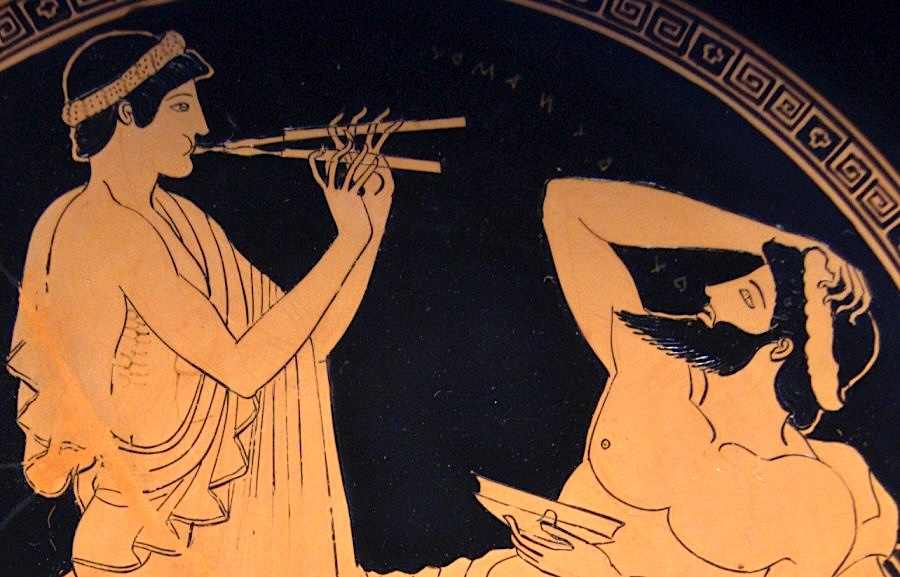
Between 750 BC and 400 BC, the Ancient Greeks composed songs meant to be accompanied by the lyre, reed-pipes, and various percussion instruments. More than 2,000 years later, modern scholars have finally figured out how to reconstruct and perform these songs with (it’s claimed) 100% accuracy.
Writing on the BBC website, Armand D’Angour, a musician and tutor in classics at Oxford University, notes:
[Ancient Greek] instruments are known from descriptions, paintings and archaeological remains, which allow us to establish the timbres and range of pitches they produced.
And now, new revelations about ancient Greek music have emerged from a few dozen ancient documents inscribed with a vocal notation devised around 450 BC, consisting of alphabetic letters and signs placed above the vowels of the Greek words.
The Greeks had worked out the mathematical ratios of musical intervals — an octave is 2:1, a fifth 3:2, a fourth 4:3, and so on.
The notation gives an accurate indication of relative pitch.
So what did Greek music sound like? Below you can listen to David Creese, a classicist from the University of Newcastle, playing “an ancient Greek song taken from stone inscriptions constructed on an eight-string ‘canon’ (a zither-like instrument) with movable bridges. “The tune is credited to Seikilos,” says Archaeology Magazine.
For more information on all of this, read D’Angour’s article over at the BBC.
Note: An earlier version of this post appeared on our site in October, 2013.
If you would like to sign up for Open Culture’s free email newsletter, please find it here. Or follow our posts on Threads, Facebook, BlueSky or Mastodon.
If you would like to support the mission of Open Culture, consider making a donation to our site. It’s hard to rely 100% on ads, and your contributions will help us continue providing the best free cultural and educational materials to learners everywhere. You can contribute through PayPal, Patreon, and Venmo (@openculture). Thanks!
Related Content:
Hear What Homer’s Odyssey Sounded Like When Sung in the Original Ancient Greek
Hear Homer’s Iliad Read in the Original Ancient Greek
Hear the Oldest Song in the World: A Sumerian Hymn Written 3,400 Years Ago
Hear The Epic of Gilgamesh Read in the Original Akkadian, the Language of Mesopotamia






Leave a Reply